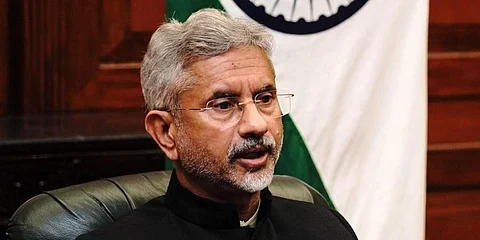

Every time there is a mention of soft-power usage in a foreign policy context, it is invariably restricted to religious, cultural and people-to-people linkages from the past. In the case of India, some foreign policy analysts have concluded that telling the other that they borrowed your religion, culture and/or language from the nation would make them feel happy and proud. This is a flawed approach and has not worked as much as it has been believed to be. The neighbourhood, both near and afar, is a case in point. In religious and cultural linkages, the perceived Indian origin does establish a warmth in some hosts but an equal revulsion/hatred in others, in the same country and community. This is due to differing political and social perceptions. It is contextualised to the experience of individuals and communities that constitute a nation.
In India’s case, this is equally so of nations, rather their divided populations, going beyond traditionally adversarial neighbours like Pakistan and China. The list is endless, both in terms of nations and common cultural identities. Between love and hatred for things from the common past with India, one balances out the other in terms of influencing home governments in individual nations in their dealings with India, neighbour or not. And yes, in the modern era, governments decide, and people-centric influence identified with soft-power linkages is minimal though not non-existent.
There are hard choices for governments to make. And they do make them. Soft-power exchanges of the cultural kinds are for coffee-room discussions. Across the working table, real power and consequent external support, financial and/or political, alone matter to the leadership in office.
This does not mean that there is no soft power, or that they do not count with foreign governments, neighbour or not. Definitely, muscle flexing cannot be called soft power. Nor is money power, though both are more influential than soft-power proper, in most cases. But where soft power counts in contemporary contexts, if at all, it owes to the moral stand a nation takes if it is consistent about it. Nothing more, nothing less.
India taking the moral high ground at Independence counted more for our post-freedom foreign policy than the muscle and money power that we did not have at the time—and possibly in comparable terms even at the present with respect to the US and adversarial China. Yet, in contemporary terms, 20th century Indian contributions to the Global South in particular were felt elsewhere too.
It did not stop with how military-minded Western nations came to respect India’s successful freedom movement that was based on Gandhiji’s ahimsa and satyagraha, after the two bloody World Wars in two decades. Nor did it stop with how Gandhiji’s leadership and success inspired other colonised nations in Asia, Arica and Latin America.
The freedom movement gave post-Independence India a moral fibre, the likes of which the world had not seen anywhere else at any time. Though Jawaharlal Nehru did not mention any linkages, within the post-colonial Non-Aligned Movement, the immediate moral past added value to India’s presence and participation.
It flowed from a right mixture of Mahatma Gandhi’s brand of religiosity and humanism—a consequent moralistic political interpretation of ‘My Experiments with Truth’, for national practitioners first and global audience alongside. It began in the twenties of the previous century, when he had the moral courage to withdraw the Non-Cooperation Movement after the infamous Chauri Chaura violence.
The strength of the moral fibre stood with and by India when Indira Gandhi tested a peaceful nuclear device in 1974 (Pokhran-I), followed by the Vajpayee government’s Pokhran-II weapons test in 1998. Even when the West imposed sanctions on the nation, none of them challenged India when it gave a pious undertaking on a ‘no-first-use policy’.
They were convinced that New Delhi was not a liar unlike Islamabad, which hid its nuclear ambitions until Pokhran-II forced its hands to undertake the Chagai weapons tests, that too in a fortnight. It’s equally so on cross-border terrorism charges against Pakistan, where the US and much of the rest of the West may have taken time to align with the Indian truth.
Today, the Indian moral fibre, the realistic soft-power tool of the nation, lends greater strength to its geostrategic and geoeconomic initiatives, and is its USP over the medium and long terms. India needs to acknowledge that there are other nations that have greater military and economic depth than the nation may be able to achieve anytime soon. But they cannot offset, upset or acquire the soft power that adds value to India’s positions and posturing in the regional and international arena.
This is so, unless New Delhi wants to substitute it with adversarial and antagonistic domestic politics, with consequences for the nation’s foreign, security and international economic policies. World nations do not want to see a mirror image of themselves in India. They want an India that is itself, with its core values intact, as they have known and learnt to respect.
N Sathiya Moorthy
Distinguished Fellow & Head-Chennai Initiative, Observer Research Foundation
(sathiyam54@nsathiyamoorthy.com)